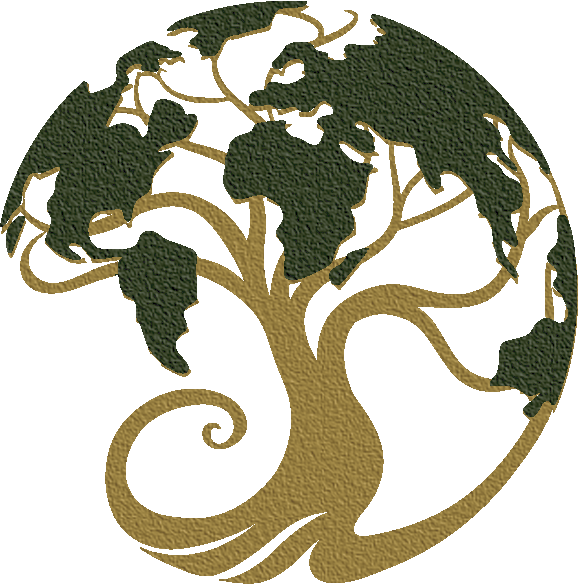The Deep Ecology of Forest Gardening & Permaculture
Embracing the Interconnectedness of Life
“Deep ecology embraces the intrinsic value of every living entity and celebrates the profound interconnectedness weaving through all life forms."
Shantree Kacera, R.H., D.N., Ph.D.
Deep ecology is a philosophical and ecological perspective that emphasizes the inherent worth of all living beings and the interconnectedness of all life forms. It was developed in the 1970s by Norwegian philosopher Arne Naess and has since influenced environmental thought and activism worldwide.
The deep ecology of forest gardening and permaculture delves into the profound interconnectedness between human beings and the natural world, echoing the principles of deep ecology. This philosophical and ecological perspective emphasizes the intrinsic value of all living beings and their interdependence within ecosystems. At its core, permaculture embodies a wholistic approach to regenerative living. It draws inspiration from nature's patterns and processes to design regenerative systems that meet human needs while enhancing ecological health and resilience.
Fundamental principles of deep ecology include:
Biocentrism: Deep ecology rejects anthropocentrism, the belief that humans are Earth's central or most significant species. Instead, it advocates for a worldview that recognizes the intrinsic value of all living beings, regardless of their utility to humans.
Ecological interconnectedness: Deep ecologists emphasize the interdependence and interconnectedness of all life forms and ecosystems. They argue that human well-being is intimately linked to the health of the entire biosphere.
Self-realization: Deep ecology encourages individuals to develop a deeper understanding of themselves and their relationship with the natural world. This often involves practices such as mindfulness, meditation, and spending time in nature.
Egalitarianism: Deep ecology advocates for social and ecological justice, challenging hierarchical structures exploiting human and non-human beings. It promotes a more equitable distribution of resources and power.
Radical environmentalism: Some proponents of deep ecology argue for radical actions to address environmental degradation, including civil disobedience, direct action, and lifestyle changes to reduce human impact on the planet.
Overall, deep ecology offers a wholistic framework for understanding humanity's place in the natural world and calls for a profound shift in values and behaviours to promote ecological sustainability and harmony with the Earth's ecosystems.
Contrasting a Deep Ecology Permaculture Lifestyle with Modern-Day Living:
Key Differences in several vital aspects:
Relationship with Nature:
Deep Ecology Permaculture Lifestyle:
Emphasizes a deep connection with nature, recognizing the intrinsic value of all living beings and ecosystems. Individuals living this lifestyle prioritize sustainable practices that harmonize with natural systems.Modern Day Lifestyle:
Often characterized by a disconnect from nature, human activities frequently cause environmental degradation and biodiversity loss. Many modern lifestyles prioritize convenience, consumerism, and economic growth over ecological sustainability.Regenerative Living Practices & Resource Consumption:
Deep Ecology Permaculture Lifestyle:
Advocates for minimalism, resource conservation, and sustainable living practices. Individuals living this lifestyle strive to minimize their ecological footprint by reducing consumption, conserving energy and water, and prioritizing local and renewable resources.Modern Day Lifestyle:
High consumption levels and waste generation often characterize them. Modern lifestyles rely heavily on fossil fuels, non-renewable resources, and environmentally harmful practices such as industrial agriculture, deforestation, and pollution.Community Relationships & Social Dynamics:
Deep Ecology Permaculture Lifestyle:
Prioritizes community building, collaboration, and social connections. Individuals living this lifestyle often engage in local initiatives, share resource networks, and foster strong relationships with neighbours and fellow community members.Modern Day Lifestyle:
It can be characterized by individualism, social isolation, and reliance on technology for communication and interaction. Modern lifestyles prioritize career advancement, material wealth, and personal achievement over community well-being and social cohesion.Ethical Considerations :
Deep Ecology Permaculture Lifestyle:
It is rooted in ethical principles prioritizing environmental regeneration, social justice, and compassion for all living beings. Individuals living this lifestyle strive to make ethical choices in their daily lives, considering the impact of their actions on the planet and future generations.Modern Day Lifestyle:
Ethical considerations may vary widely among individuals, with some prioritizing personal gain, convenience, or short-term benefits over broader ethical concerns such as environmental protection, human rights, and animal welfare.Food Production & Soil Depletion:
Deep Ecology Permaculture Lifestyle:
Emphasizes organic, local, and regenerative food production methods. Permaculture gardens and regenerative agriculture practices are central to this lifestyle, promoting biodiversity, soil health, and community resilience.Modern Day Lifestyle:
Relies heavily on industrial agriculture, factory farming, and processed foods. Modern diets are often high in animal products, highly processed foods, and ingredients, contributing to health issues and environmental degradation.Plant-Based Nutrition & Diet and Consumption Patterns:
Deep Ecology Permaculture Lifestyle:
Prioritizes a local plant-based diet, emphasizing whole foods, fruits, vegetables, grains, legumes, nuts, and seeds. Respect the interconnectedness of all life forms and seek to minimize harm to animals and the environment by abstaining from animal products.Modern Day Lifestyle:
Typically includes various animal products, processed foods, and convenience items. Consumption habits may contribute to health issues, environmental degradation, and animal suffering associated with industrial agriculture and factory farming.
In summary, while modern-day lifestyles are often characterized by consumption-driven economies, environmental degradation, and social disconnection, a deep ecology permaculture lifestyle offers an alternative approach rooted in ecological wisdom, social responsibility, and wholistic well-being. By embracing principles of regenerativty, community, and ethical living, individuals can cultivate lifestyles that promote harmony with nature and contribute to the flourishing of all life on Earth.

